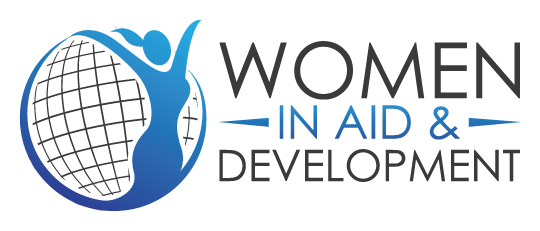It’s Time for More Women in Leadership
Every year on 8 March, countries across the globe commemorate International Women’s Day (IWD) where women are recognised for their achievements and as a rallying point to continue to build support for women's rights and participation in the political and economic arenas.
Since first being observed on 28 February 1977, in honour of the 1908 garment workers strike in New York City, IWD has grown in momentum and each year more and more countries join in on celebrations.
Whilst IWD 2021 is definitely going to look much different, it’s probably one of the most important years to observe the day. The past 12 months has shone a huge spotlight on the inequities that continue to exist in our society and as we move into pandemic recovery mode it’s more important than ever that women move into leadership and have our perspectives and ideas integrated into policy development and decision-making.
This year the UN Women’s theme for IWD is: ‘Women in Leadership: Achieving an equal future in a COVID-19 world.” The theme forms part of the push by the 65th session of the Commission on the Status of Women calling for: “Women's full and effective participation and decision-making in public life, as well as the elimination of violence, for achieving gender equality and the empowerment of all women and girls.”
COVID-19 has devastated communities around the world but there is no denying that women have been more affected, as they stand at the front lines of this pandemic. As caregivers, health workers, community organisers and national leaders, the last year has not only proved how central women’s contributions are to everyday life but also just how disproportionate things really are.
In September 2020, a virtual intergenerational event was co-hosted by UN Women, the Government of Mexico and the Council of Women World Leaders, in collaboration with the Generation Equality Forum. The event saw different leaders from across the world, across ages and sectors, come together to discuss the importance of intergenerational and diverse leadership in high-pressure situations (like a pandemic). They also discussed just how much better the world would be if there was an equal representation of women in decision-making.
Iceland’s Prime Minister and Chair of the Council of Women World Leaders, Katrín Jakobsdóttir, argued that diversity among decision makers benefits everyone.
“When we have diverse leadership, we make better decisions and we are more aware that we need to be able to put ourselves in each other’s shoes.” – Prime Minister Jakobsdottir
According to the World Economic Forum, the single most powerful thing an organisation can do to promote more women leaders is to create a culture of Conscious Inclusion. “This means building the desire, insight and capacity of people to make decisions.”
Whilst the calls for more representation has been loud and clear, it’s also true that there are persistent social and systemic barriers to women’s participation and leadership and the pandemic has only introduced even more barriers. This is why we must continue to encourage more women into leadership positions.
As our way of continuing this encouragement, we are hosting a very special IWD event in partnership with the Australian Council for International Development (ACFID). We are looking forward to presenting a lively lunchtime discussion with incredible leaders across the aid and development sector that will be sharing advice, guidance and inspiration as they encourage women working across aid and development to step into leadership.
Small group networking sessions with the panellists, other guest speakers and participants will follow our panel discussion. We want to encourage as many people as possible to attend as we hear some incredible experiences, gain knowledge, and reflect on the challenges faced on the road to leadership.
Register here and join us as we continue the fight that started all those years ago when 15,000 brave garment workers in New York City left their workstations and demanded their voices be heard.
